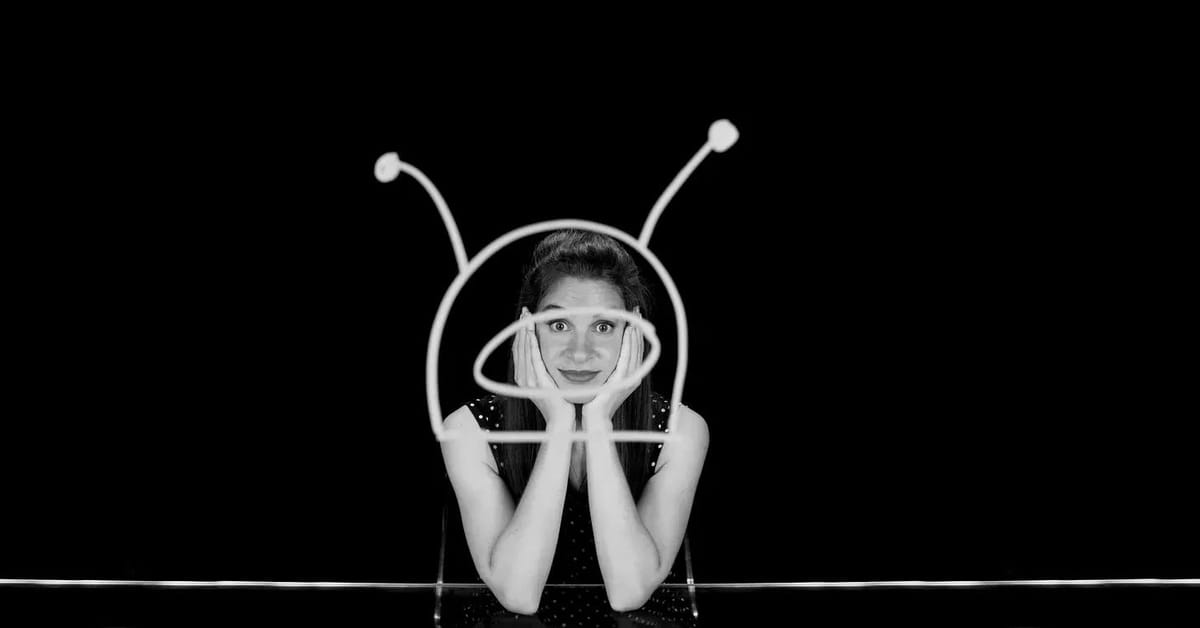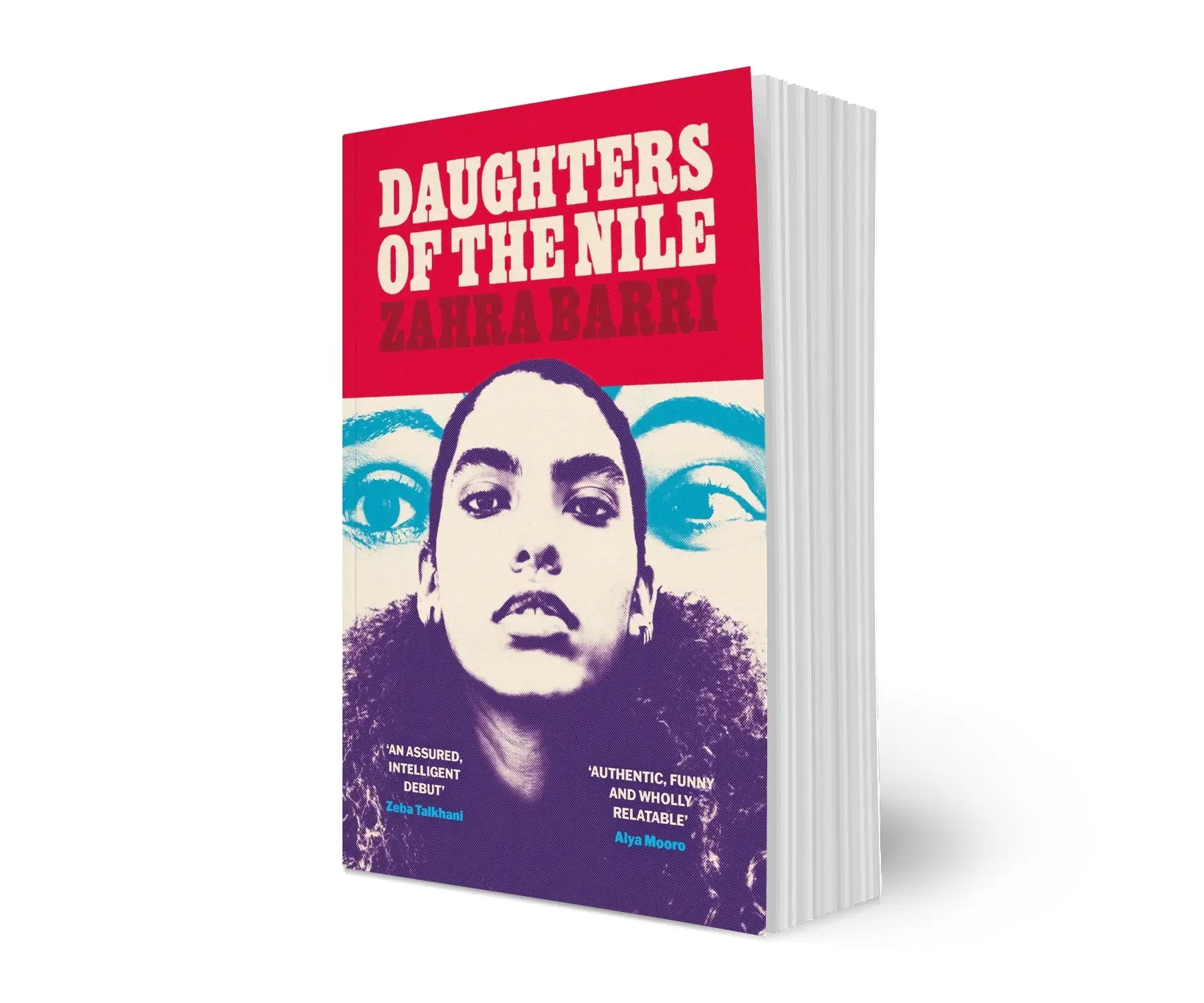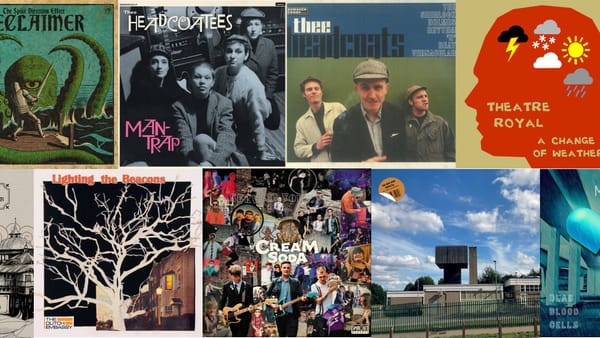“Once I get onto my laptop, I'm in another world”
What Steven asked Zahra Barri, author, comedian and new Local Authority columnist

There is a new guest writer at Local Authority, a published author and former stand-up no less. Steven met with Zahra Barri at the No64 cafe in Intra to talk about the influences of her Egyptian Irish background on her work, how she came to be studying for a PhD in Creative Writing, and if she will be working for the Labour Party.

You've recently joined Local Authority as a writer. What can readers expect from the pieces you're going to do?
Well, it's all about volunteering. I noticed that there was a lot of stuff going on with online activism, and I thought, what can I actually do that's not just online activism? What can I actually do in my community? I moved here four years ago, and I've got to know so many people in Medway. I love the community and well, to be honest, I'm a writer and I find writing can be quite self-indulgent and wanted to do something that wasn't self-indulgent in writing. That was my way of activism, really.
What will you actually be doing?
Going to local volunteering places, homeless shelters, animal shelters, and having an experience of that day and what it's like to volunteer and then finding out about the charity or the cause and then writing about it and encouraging other people to volunteer. I think in an age where we're quite global, it's quite nice to just home in on something a lot smaller. You know that saying ‘Charity begins at home’? I took that to heart in the fact that there's so many world issues going on, you feel quite powerless. I thought just scale it down a little bit, do something within your community and if everyone did that then perhaps that would have a ricochet effect on the entire world.
If there's someone reading this who runs a local charity, can they get in touch and invite you along?
Yes, absolutely. In fact, I'm looking for more and more places specifically in Medway that I can go to, help out at and then spread the word. (You can get in touch with Zahra via her website.)
What was the inspiration behind your novel Daughters of the Nile?
A little bit of personal and the political. I'm Egyptian. I wanted to write about my Egyptian roots, and I specifically did that with three generations of Egyptian women. During my research of Egyptian history, I found out about a Muslim feminist called Doria Shafik, who got women the vote in 1956. She set up a magazine for women that was written in Arabic when most of the women's magazines were written in French, which only the very elite Egyptians could read. She made literacy very accessible. She set up literacy establishments across Egypt, and she was silenced by the regime and forgotten. So much so that the New York Times, when she died, didn't release an obituary. They released it ten years after she died and an apology, but she was a huge feminist revolutionary in Egypt. I fused her historical biography, with a fictionalised version of a family in Egypt that was loosely based on my own family. She was quite an activist in her community, which perhaps inspired me getting into community-based projects and activism. She's a huge inspiration to me, Doria Shafik.

What was the experience like of recording the audiobook version?
Oh gosh, that was surreal. I read the youngest generation of the Egyptian family member. It's strange. I essentially read a third of the book because it's three generations of women. I did the voice of the youngest, Nadia, who's British-born. I was in a booth. It's an extreme version of me. I'm not as crazy as her. She's me if I have the confidence to be. She's a lot more traumatised than me, let's put it this way. Specifically sexually traumatised. It was weird reading back your words. In some of it she works in TV, and she works in recording studios and things like that. So to be in a recording studio recording the audio of my audiobook was quite meta I suppose.
Is audio recording something you had experience with before?
Yes, because before I got into writing I was doing stand-up comedy and also acting. I did stuff on Radio 4 and things like that. I'm used to speaking and recording things, but not my own book. That was a new experience.
How did it come to be published by Unbound?
I entered the Unbound First Writers of Colour Debut Authors Competition where they champion two authors. Me and Iqbal Hussain won it, and we basically got a book deal. It was very surreal. I don’t think I have ever won anything in my life.
People might know Unbound is a crowdfunding-based publisher. Did you have to go through that process?
No, I didn't. It was very weird because during my creative writing MA I was reading a book called The Good Immigrant. It was an Unbound book. It's a very famous book and it's probably one of their bestsellers. I was reading it for some research that I was doing for my MA and I'd heard of Unbound from that. I would never have crowdfunded because I'm not very good on the internet, I'm not very good at selling myself. I've actually just decided to come off all social media apart from Substack. I don't think I would have ever done it. Sorry, what was the question again?
You didn't have to crowdfund it, which is what Unbound is known for.
It was really lucky that I won the award because I didn't have to crowdfund. I could just have a more traditional book deal. Which worked best with me, I think.
Had you approached any other publishers at that point?
I hadn't actually, because I was writing the novel for my PhD in Creative Writing. I was focusing on that, I wasn’t actually focusing on getting published, which in hindsight I think was good because I wrote like nobody was reading it, other than my PhD supervisor. I really went to town and was no holds barred on everything, which I think helped. I had no barriers, I was not shy. I wrote it like nobody was going to read it.




